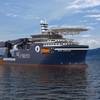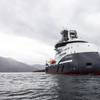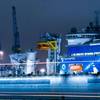IMO Launche Ship Recycling Project in Bangladesh
The second phase of an International Maritime Organization (IMO)-implemented project to enhance safe and environmentally sound ship recycling in Bangladesh has been launched at a meeting of stakeholders in Dhaka, Bangladesh.
According to a press release from IMO, the 19-month project is funded under a US$1.1 million agreement with the Government of Norway. It focuses on building capacity within Bangladesh to develop a legal, policy and institutional reform roadmap towards accession to the Hong Kong International Convention for the Safe and Environmentally Sound Recycling of Ships (known as the Hong Kong Convention), and will train a variety of stakeholders within a well-functioning training system.
The project (click for photos) will build on the first phase of the Safe and Environmentally Sound Ship Recycling in Bangladesh (SENSREC) Project, which resulted in economic and environmental studies on ship recycling in Bangladesh, the development of training materials and capacity building plans and a preliminary design for infrastructure including facilities for treatment, storage and disposing of hazardous wastes generated from recycling operations.
Speaking at the Dhaka meeting, Ms Sidsel Bleken, Ambassador of Norway to Bangladesh, highlighted the significant progress made and their support for phase II of the project.
“The first phase of the project has achieved significant progresses in terms of developing health, safety and environmental standards as well as developing appropriate training programs for the industry stakeholders including its workers. Norway is pleased to launch phase II of the project and to continue supporting Bangladesh on its road to compliance with the Hong Kong Convention. The Government of Bangladesh, the ship recycling industry as well as the international ship-owners, have a joint responsibility in making this happen,” she said.
Bangladesh is one the world’s top five ship recycling countries by capacity, alongside China, India, Pakistan and Turkey. Together they accounted for 98% of known ship recycling in the world*. Ship recycling is key for the local economy and produces large quantities of steel and other materials which are recycled and sold on.
The SENSREC Phase II Project will continue to support Bangladesh to comply with international requirements and guide Bangladesh towards accession to the IMO ship recycling treaty, namely the Hong Kong Convention.
The Hong Kong Convention sets the international standards for ship recycling and, when in force, will ensure that ships do not pose any unnecessary risks to human health, safety or the environment when being recycled at the end of their operational lives.
Bangladesh will be assisted to build the capacity to develop and implement a legal, policy and institutional roadmap towards accession to the Hong Kong Convention. A variety of stakeholders will be trained within a well-functioning training system to lay the foundation for an effective and sustainable training programme for the ship recycling sector in Bangladesh.












